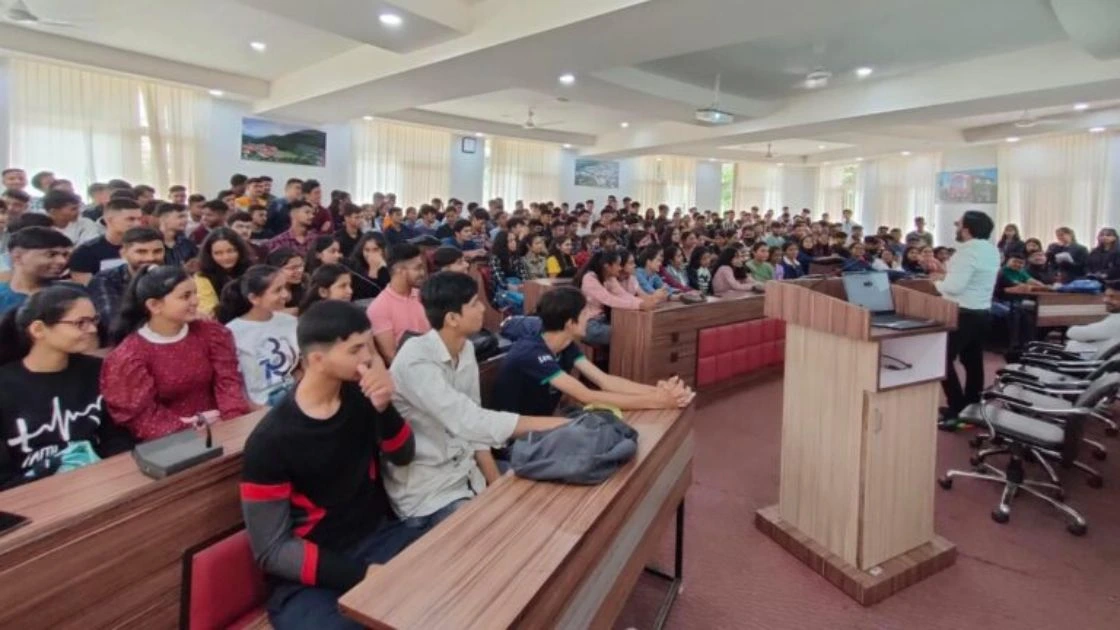Introduction to Node.js
Node.js is an open-source, cross-platform runtime environment that allows developers to execute JavaScript code on the server side. It was created in 2009 by Ryan Dahl and is built on the V8 JavaScript engine developed by Google. By transforming JavaScript into a powerful server-side language, Node.js revolutionizes how web applications are built, enabling high scalability and responsiveness.
One of the core features of Node.js is its event-driven architecture. This model allows the server to handle multiple connections simultaneously by utilizing events and callbacks. When a request is made, Node.js registers the event and continues executing other code, invoking the appropriate callback once the response is ready. This non-blocking I/O model is a significant advantage, as it optimizes the performance of applications, making them capable of processing numerous requests concurrently without lag. Such efficiency is especially valuable in environments requiring real-time data transfer, like messaging apps and online gaming platforms.
Furthermore, Node.js utilizes a single-threaded model with event looping, which contrasts with traditional multi-threaded server architectures. This means that instead of creating a new thread for each incoming request, Node.js uses a single thread to manage all requests, significantly reducing overhead and memory usage. This approach enhances application performance, providing developers with the ability to build fast and scalable network applications. The abundance of libraries available via the Node Package Manager (npm) also allows for easy integration of additional functionalities, making it an ideal choice for developing modern web applications.
The unique features of Node.js and its ability to handle asynchronous operations efficiently have contributed to its rise as a foundational technology in web development. Taking a Node.js course can provide developers with essential skills to leverage this technology effectively, opening doors to numerous opportunities in the realm of web application development.
The Rise of Node.js in Web Development
Node.js emerged in 2009 as an innovative runtime for executing JavaScript on the server side, complementing its traditional use in client-side development. Developed by Ryan Dahl, it introduced an event-driven, non-blocking I/O model that enhances performance and scalability, making it suitable for data-intensive applications. Over the years, the demand for robust and efficient web applications has surged, consequently accelerating the popularity of Node.js among developers and organizations alike.
One of the notable features of Node.js is its ability to handle multiple concurrent connections, which has made it an attractive choice for real-time applications such as online gaming, chat applications, and collaboration tools. This inherent scalability has encouraged enterprises to adopt Node.js, bolstering its position in the web development landscape. As more developers utilize the asynchronous, event-driven programming model, communities have blossomed, creating an extensive ecosystem of libraries, frameworks, and tools, such as Express.js, that further streamline the development process.
Several prominent companies have recognized the significance of Node.js in modern application development. Netflix, for instance, transitioned from Java to Node.js for its user interface layer, significantly enhancing performance, improving scalability, and reducing startup time. Similarly, LinkedIn adopted Node.js for its mobile backend, achieving remarkable improvements in performance and efficiency. These case studies underscore how Node.js has become pivotal in addressing the complexities of large-scale web applications.
The increasing emphasis on microservices architecture has also contributed to the rise of Node.js, as its lightweight nature complements this approach, allowing for the development of modular and easily maintainable applications. As organizations continue to seek rapid development cycles and improved user experiences, the preference for a Node.js course gains momentum, equipping developers with the essential skills to leverage this powerful technology effectively.
Key Benefits of Learning Node.js
One of the most compelling reasons to undertake a Node.js course is the significant enhancement it provides to job opportunities in the tech industry. As businesses increasingly migrate their operations to digital platforms, the demand for skilled developers who understand Node.js has surged. Companies are looking for professionals capable of creating fast, scalable applications, which Node.js excels at. Consequently, mastering Node.js equips aspiring developers with a competitive edge, opening doors to higher-paying roles and diverse career paths in web development.
Beyond job prospects, a Node.js course enhances an individual’s programming skill set. Node.js is built on the V8 JavaScript engine, which allows developers to write server-side code in JavaScript, a language already dominant on the front end. This unification of coding languages simplifies the development process and aids in skill retention. Developers become proficient in asynchronous programming models, which are essential for tackling the challenges of modern web application scenarios, such as handling multiple connections simultaneously without performance degradation.
Furthermore, learning Node.js cultivates familiarity with contemporary development practices, including RESTful APIs, microservices, and real-time applications. These practices are pivotal in today’s fast-paced tech landscape, enabling developers to create more responsive, efficient applications. Node.js also promotes the use of modern development tools like npm (Node package manager), which eases the integration of external libraries and modules, thus accelerating the development process.
Finally, Node.js empowers developers to build scalable applications with higher efficiency. Its non-blocking architecture and event-driven model allow developers to handle numerous concurrent connections, making it a popular choice for applications that require real-time capabilities, such as collaborative tools and instant messaging services. By enrolling in a Node.js course, developers acquire the essential knowledge to harness these capabilities effectively.
Node.js in the Job Market
The job market for Node.js developers is rapidly evolving, reflecting the increasing demand for professionals skilled in this technology. As more companies recognize the benefits of using Node.js for server-side applications, the need for qualified developers continues to rise. This trend is particularly significant as organizations seek faster, more efficient ways to handle web applications and real-time data processing.
According to recent data, the average salary for Node.js developers can range from $80,000 to over $120,000 per year, depending on experience, location, and the complexity of the projects involved. In metropolitan areas, salaries often exceed these averages due to high demand and cost of living adjustments. As a result, pursuing a Node.js course can be a lucrative investment for those looking to enhance their career prospects in software development.
Moreover, the skills acquired through a Node.js course extend beyond traditional development tasks. Graduates can explore various career paths such as full-stack developer, backend engineer, and even DevOps roles. The versatility of Node.js allows developers to work in diverse environments, including startups, large enterprises, and even freelancing opportunities, thereby broadening their employment prospects.
Growth projections for the technology sector suggest that jobs requiring Node.js knowledge are expected to grow at a substantial rate over the next five years. Many businesses are actively recruiting for positions that require a proficiency in Node.js, signifying its integral role in modern web development. This recruiting trend underscores the importance of acquiring Node.js skills as a strategic career move for aspiring developers.
In conclusion, the job market for Node.js developers presents a wealth of opportunities. By undertaking a Node.js course, learners can equip themselves with relevant skills that meet the increasing demand and position themselves strategically within the tech workforce.
Comparing Node.js to Other Programming Languages
Node.js is often compared with other prominent programming languages like Python, Java, and Ruby, each of which has its unique strengths and weaknesses in the realm of web development. When discussing performance, one of the most significant advantages of Node.js lies in its non-blocking, event-driven architecture, allowing for highly efficient handling of multiple requests simultaneously. This is particularly beneficial for applications that require real-time data processing, such as chat applications or online gaming platforms.
In contrast, Python, while known for its simplicity and readability, typically employs a synchronous processing model, which can lead to slower response times under heavy load. However, Python excels in rapid application development and is widely used in data science, machine learning, and scripting, making it a strong contender depending on the project’s scope. Java brings robust performance and scalability into the mix, serving as a backbone for large enterprise applications. Its object-oriented structure promotes code reusability and maintainability. Yet, the complexity of Java can pose challenges, particularly for startups aiming for agile development. Kernel to this comparison is Ruby, noted for its elegant syntax and developer-friendly features, particularly within the Ruby on Rails framework. While it simplifies the building of web applications, Ruby can struggle with performance at scale, particularly concerning speed when handling a large number of requests.
When it comes to scalability, Node.js shines particularly bright, fueled by its asynchronous capabilities and lightweight nature. Applications built with Node.js tend to manage scalability far more efficiently compared to those constructed with Python, Java, or Ruby, especially under significant user loads. The growing ecosystem of Node.js modules further enhances its power in web development, providing a versatile platform that can adapt to various project requirements. These characteristics underscore why the node js course is increasingly sought after by developers aiming to leverage modern web technologies.
Building Real-world Applications with Node.js
Node.js has emerged as a powerful platform for developing robust applications, enabling developers to build scalable network applications quickly and efficiently. With its event-driven architecture and non-blocking I/O model, Node.js is particularly well-suited for applications that require real-time data processing, such as chat applications, online gaming, and collaborative tools. By enrolling in a well-structured node js course, aspiring developers can gain hands-on experience in creating real-world applications that meet contemporary demands.
One of the most notable frameworks within the Node.js ecosystem is Express.js, a minimalist web framework that simplifies the process of building server-side applications. Express.js provides a variety of features for web and mobile applications, including routing, middleware support, and template rendering, making it a go-to framework for many developers. For those looking to enhance their skills further, a node js course that incorporates Express.js will provide practical insights into how to architect web applications effectively.
Moreover, the use of databases in conjunction with Node.js is crucial for developing data-driven applications. The integration with NoSQL databases like MongoDB allows developers to work efficiently with JSON-like documents, enhancing the productivity and performance of the application. Similarly, developers can utilize SQL databases with Node.js through libraries such as Sequelize. Understanding these databases is essential, and many educational programs, including node js courses, include modules dedicated to this topic.
Hands-on experience is key to mastering Node.js, as project-based learning allows learners to apply theoretical knowledge in practical scenarios. By working on real-world projects, learners are better equipped to confront challenges they might face in a professional environment. The combination of a solid learning foundation, supported by real-world application development, positions developers to excel in the constantly evolving field of web technology.
How AppWars Technologies Facilitates Node.js Learning
AppWars Technologies stands out as a leading platform dedicated to enhancing the learning experience for aspiring Node.js developers. With a focus on practical skills development, the organization offers a comprehensive array of resources and structured courses that empower learners to master this influential JavaScript runtime environment.
The Node.js course provided by AppWars Technologies is designed to accommodate various skill levels, from beginners to advanced practitioners. Each module is carefully crafted to ensure that participants grasp the core concepts of Node.js, including its asynchronous nature and event-driven architecture. Furthermore, learners benefit from hands-on projects that simulate real-world applications, solidifying their understanding and preparing them for professional challenges.
In addition to structured coursework, AppWars Technologies emphasizes mentorship as a pivotal aspect of its educational approach. Participants are paired with experienced industry professionals who provide guidance, answer questions, and offer insights that can significantly enhance the learning experience. This one-on-one interaction fosters a personalized learning environment, allowing students to address specific areas of difficulty and encouraging deeper engagement with the material.
Moreover, AppWars Technologies cultivates a vibrant community of learners and professionals. This community support is crucial for students, as it facilitates networking opportunities and collaboration on projects. Forums and discussion groups provide platforms for learners to exchange ideas, troubleshoot problems, and celebrate successes. Engaging with peers fosters a sense of belonging, inspiring individuals to push their limits and continuously improve their Node.js skills.
Ultimately, through its robust course offerings, mentorship opportunities, and strong community support, AppWars Technologies provides an enriching environment for anyone looking to delve into Node.js, making the learning journey both impactful and effective.
Success Stories of Node.js Learners
The rise of Node.js in web development has not only transformed the technology landscape but has also significantly impacted the careers of countless developers. Among these, several individuals have shared their inspiring journeys, underscoring the pivotal role that learning Node.js has played in shaping their professional paths. One notable success story comes from a learner named Sarah, who took a comprehensive Node.js course through AppWars Technologies. Prior to the course, Sarah was struggling to find her footing in the competitive tech field. However, gaining expertise in Node.js enabled her to develop complex applications, which ultimately landed her a coveted position as a backend developer at a leading tech startup. Her projects utilizing Node.js strengthened her portfolio, making her a desirable candidate for employers.
Another compelling narrative is that of James, who transitioned from a mobile app developer to a full-stack developer after enrolling in a Node.js training program. By mastering Node.js, James not only expanded his skill set but also increased his earning potential significantly. He successfully leveraged his knowledge to contribute to high-profile projects that required real-time data processing, showcasing the versatility of Node.js in tackling various development challenges. His journey illustrates how individuals can pivot their careers through continuous learning and adaptation to modern technologies.
Lastly, there’s the story of Maria, who utilized her knowledge from a Node.js course to launch her own startup. By creating a platform driven by Node.js, she streamlined operations and introduced innovative services that attracted a dedicated user base. Maria’s success exemplifies how mastering Node.js can lead to entrepreneurial opportunities, highlighting its importance not just for career advancement but also for those aspiring to create and innovate in the tech space. These success stories underscore the transformative power of learning Node.js and its ability to enhance career trajectories in today’s ever-evolving digital landscape.
Conclusion: The Future of Node.js and Continuous Learning
In conclusion, the importance of Node.js in modern web development cannot be overstated. Throughout this blog post, we have explored the various advantages of this powerful JavaScript runtime, including its efficiency, scalability, and the vast ecosystem of libraries and frameworks that support it. As more enterprises and developers recognize the value of Node.js for building high-performance applications, the demand for professionals skilled in this technology will continue to grow. This trend highlights the necessity for continuous learning and adaptation in the tech landscape.
The landscape of web development is ever-evolving, driven by advancements in technology and shifting user expectations. As a result, remaining current with Node.js advancements is crucial for developers aiming to enhance their careers. Engaging in a comprehensive Node.js course can significantly aid in solidifying foundational knowledge and expanding expertise. Such courses often provide insights into the latest features and best practices, which can be crucial for personal and professional growth in a fast-paced environment.
Looking forward, Node.js is likely to experience further innovations that will enhance its capability and broaden its applications. With ongoing updates and an active community contributing to its development, Node.js will remain a significant player in the web development realm. Therefore, incorporating Node.js into your programming toolkit not only equips you with a valuable skill set but also positions you to take advantage of future opportunities in technology. Ultimately, embracing continuous learning in this field ensures that you remain competitive and ready to meet the challenges of the modern software landscape.












